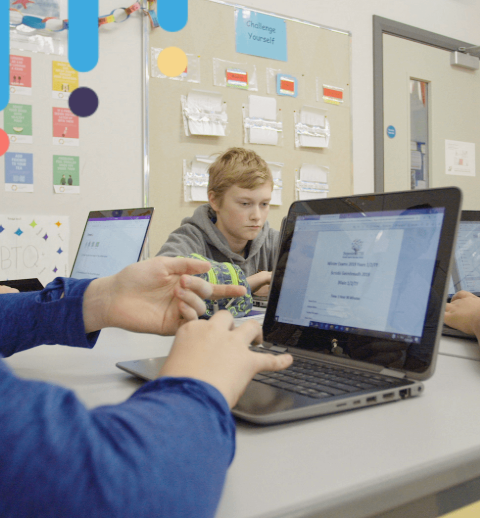Staying organized is essential for academic success, especially in today’s fast-paced digital learning environment. Whether you’re managing multiple classes, tracking deadlines, or preparing for exams, digital study tools can help streamline your workflow and reduce stress. From note-taking apps to time management platforms, here’s how students can stay on top of their academic responsibilities using free and effective digital tools.
- Google Calendar – Ideal for scheduling classes, study blocks, and assignment due dates. Students can set recurring reminders, color-code events by subject, and integrate deadlines from Google Classroom or Canvas. It helps build routine and ensures you never miss important deadlines. Shared calendars also make it easy to coordinate group work.
- Notion – A flexible all-in-one workspace that allows you to create notes, to-do lists, calendars, and study databases. Students can track assignments, build a digital syllabus, and log exam results all in one place. Customizable dashboards, weekly planners, and integration with tools like Google Drive make it powerful for long-term academic planning.
- Todoist – A powerful task manager that helps break large assignments into manageable tasks. It supports natural language scheduling (e.g., “Read chapter 5 every Monday”), recurring tasks, and productivity goals. You can set project boards for different subjects and use tags to organize by priority.
- Evernote – Great for organizing class notes, lecture recordings, and study resources in one searchable location. It supports audio, images, checklists, and document attachments. You can clip web pages, digitize handwritten notes, and categorize all your content into notebooks for easy access during exam season.
- Trello – A visual project management tool that uses boards, lists, and cards. Students can create boards for each subject, drag-and-drop assignments across progress stages, and collaborate with classmates on shared boards. Trello also integrates with calendar apps and offers automation for repetitive tasks.
- OneNote – Microsoft’s digital notebook allows students to divide content by subject or topic. It supports typed, handwritten, and audio notes, as well as image annotations. OneNote is great for organizing class materials across semesters and syncing across all devices.
- Pomofocus (Pomodoro Timer) – A digital timer that uses the Pomodoro Technique (25 minutes of focused work followed by a short break) to boost concentration and prevent burnout. It improves productivity by encouraging focused sessions and regular breaks. Some versions include analytics to track how you spend your time.
- Quizlet – Ideal for organizing vocabulary and definitions using digital flashcards. Students can create personalized sets or use millions of publicly shared decks. Quizlet also offers game modes and timed quizzes, which are excellent for memorization and self-assessment.
- Coggle – A collaborative mind-mapping tool that helps students visually organize concepts. It’s perfect for mapping out essays, study guides, or exam outlines. Coggle supports real-time collaboration, version history, and export features, making it ideal for brainstorming and planning.
- Google Keep – A simple and fast note-taking app that syncs across devices. Use it to capture spontaneous ideas, color-code tasks, and create checklists. Keep’s reminders integrate with Google Calendar and its sharing feature makes it great for teamwork.
- Forest – A productivity app that encourages students to stay off their phones while studying. As you focus, a virtual tree grows—and the more time you stay focused, the more your digital forest thrives. Forest combines focus with a gamified experience, helping build long-term concentration habits.
- PDF Annotators (Kami, Adobe Acrobat Reader) – These tools allow students to highlight, annotate, and comment on digital readings or lecture slides. Annotating PDFs improves comprehension and supports active learning. Students can also add sticky notes, extract text, and collaborate on shared documents.
- MyStudyLife – A free app designed specifically for students to manage their schedules, exams, assignments, and classes. It provides a centralized view of all academic obligations and even tracks tasks by completion status.
- Toggl Track – A time-tracking tool for students who want to evaluate how they spend their study hours. It helps build self-awareness and accountability, which can lead to better time management and smarter study routines.
- Zotero and Mendeley – Reference managers that help students organize research articles, generate citations, and store PDFs. They are essential for academic writing and can be integrated with word processors for easy bibliography formatting.
In summary, digital study tools help students manage their academic lives more effectively. By combining scheduling apps, task managers, productivity boosters, and note organization systems, learners can build productive habits, minimize stress, and stay organized throughout the school year. With consistent use, these tools can transform how students approach learning, reduce procrastination, and foster long-term academic success. Whether you’re studying independently or collaborating with peers, digital tools provide a reliable foundation for staying organized and achieving your academic goals.














